Acupuncture Relief Project: Groundbreaking Research in Nepal
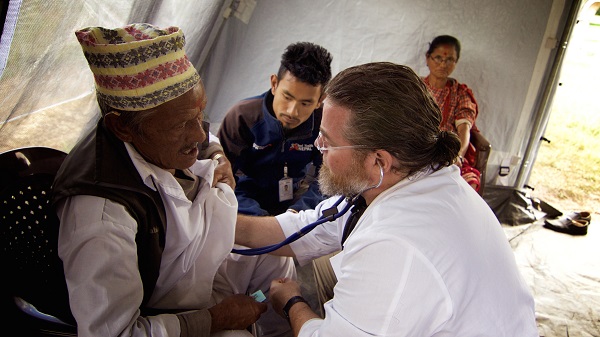 I treat too many strokes in Nepal.
I treat too many strokes in Nepal.
To my estimation, the prevalence of stroke in Nepal might be 2-3 times as great as in the United States (a country well known for its poor diet and obesity problems). Not only that, I see very young people, sometimes in their thirties that have suffered strokes. How can that be?
Even though I have seen patients significantly improve with the help of frequent acupuncture visits, once a person has suffered a stroke, there is little to be done except for exhaustive rehabilitation and people rarely have a full recovery. No matter how good we become at treating stroke sequelae, recovering lost physical and mental function, in most cases survivors and their families are permanently impacted.
More than developing better treatment strategies, why are we not asking… “How do we prevent the next stroke?”, “How would we go about doing that?” and “How would we know if we had actually prevented it?”
It is really an issue of establishing a baseline so that we can better understand the problems before us.
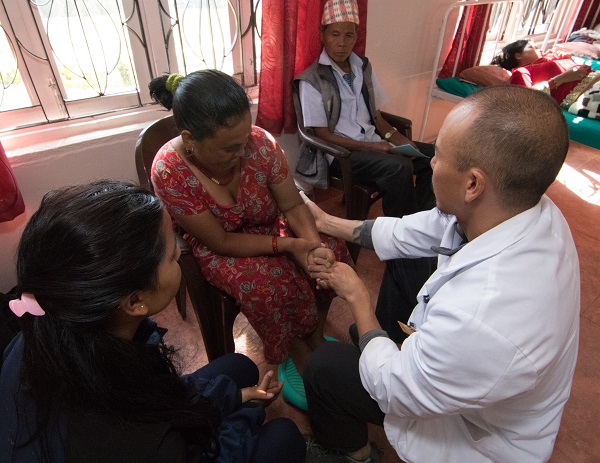
Right now, little is known about the health risks and problems in rural Nepal. No one knows exactly how many cases of diabetes or hypertension are in the population because most of the cases are undiagnosed. It might be a huge problem and it might not. We don’t know.
Not knowing doesn’t stop us, though maybe it should. It must be human nature that when we see a problem, we go right to work trying to solve the problem, whether we understand the problem or not. This makes me think about how I observe volunteer practitioners working in our clinic too often jumping to conclusions and moving onto treatment before really understanding the problem. More importantly, before gathering baseline observations or making defined outcome predictions. Too often they find themselves frustrated with negative or ambiguous results and are unsure as to how to proceed with their patients. Or worse, their patients lose hope and abandon treatment.
We need to better understand the problem.
Background
Since 2008, Acupuncture Relief Project (ARP) has developed a very sustainable, efficient and effective model for delivering basic medical care in rural environments. This year we now find ourselves in a unique position to influence legislation, accreditation and standardization of acupuncture in Nepal.
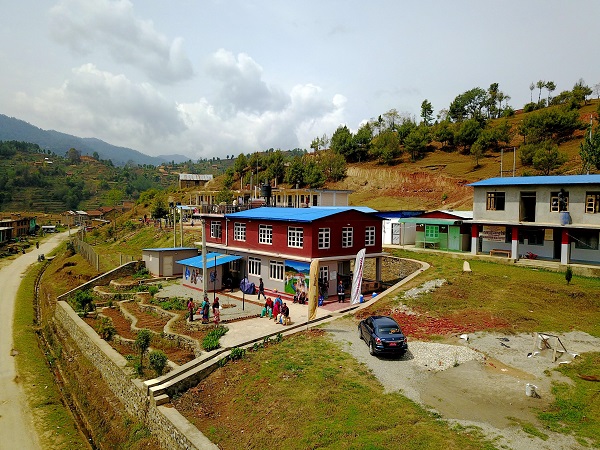
In the West, we take for granted that we can go to school and receive a recognized accredited diploma in our chosen field of study. We have national organizations that set the standards for our profession and we have governmental bodies that regulate our scope of practice. All of these things had to be invented, lobbied for and institutionalized. As we have worked with and mentored many students in Nepal, it has become ever more apparent that beyond what we do in our humble clinic, Acupuncture Relief Project has emerged as the leading advocate for legitimization of the acupuncture profession in Nepal.
Acupuncture Relief Project has been working with the Nepal Health Research Council and Nepal Health Professionals Council to establish guidelines for the practice of acupuncture in Nepal. We are interested to found a new integrated model of primary care called “Lifestyle Medicine” or “Healthy Lifestyle Centers". This term comes from a World Health Organization mandate for developing countries to address non-communicable disease in their population. Sri Lanka has the most developed version of this concept ) and through this integrated model have dramatically reduced their heart disease and diabetes. Sri Lanka’s approach utilizes basic patient services including, patient education, manual modalities, herbal medicine, western medicine and acupuncture. We are the perfect example of this type of model in Nepal and we have been asked by the government to help establish a framework to evaluate our effectiveness.
New Research Project
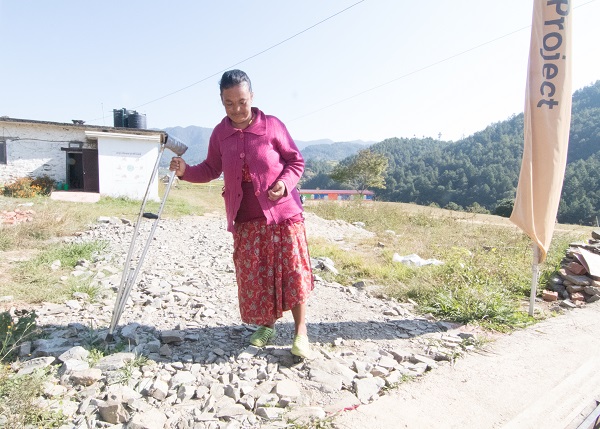 In November 2018, Acupuncture Relief Project will conduct a door-to-door survey to establish baseline population characteristics and prevalence for adult non-communicable diseases (NCDs) in five of the fifteen wards of Thaha municipality in Makawanpur District, Nepal. This important research will be a collaboration of Acupuncture Relief Project, Good Health Nepal, Oregon College of Oriental Medicine (OCOM), and Nepal Health Research Council in Kathmandu.
In November 2018, Acupuncture Relief Project will conduct a door-to-door survey to establish baseline population characteristics and prevalence for adult non-communicable diseases (NCDs) in five of the fifteen wards of Thaha municipality in Makawanpur District, Nepal. This important research will be a collaboration of Acupuncture Relief Project, Good Health Nepal, Oregon College of Oriental Medicine (OCOM), and Nepal Health Research Council in Kathmandu.
This observational study will be the first of its kind in Nepal. A cross-sectional population survey to identify demographics and the burden of risk factors for NCDs. The survey is adapted from the World Health Organization (WHO) STEPwise approach to non-communicable disease risk factor surveillance, and consists of questionnaire-based assessments, physical measurements and basic biochemical measurements. Read the full proposal.
Potential Benefits of this Research
Data and insights from this baseline survey will contribute to emerging NCD data for Nepal, and support the establishment and operation of future Lifestyle (Integrative) clinics in rural Nepal. Similar to other countries in the region (Mallawaarachchi, 2016; Siriwardhana, 2013, Sagner 2016), these lifestyle clinics will likely prioritize preventive health education, palliative care, dietary changes, exercise and other lifestyle modifications. Additionally, they will serve as primary care centers providing medical advice, diagnosis, and treatment for acute and chronic conditions.
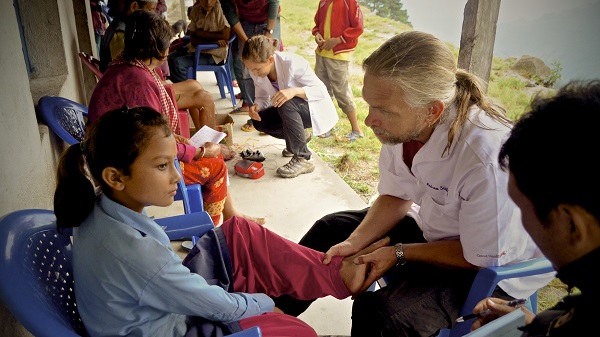
How do we better understand the problem before we jump to solving the problem? This research will serve as a tremendous step forward in helping us to identify and better understand the problems facing rural Nepal. This research will be a groundbreaking model in Nepal that is actively utilizing an integrative approach to address the real health needs of it’s people.
Join Us
If you would like to donate to this research project we would very much appreciate your help. Please follow this link to read more about the research project and donate. Additionally Acupuncture Relief Project is looking for volunteers for its Third World Medicine Immersion Program (March 4th - May 3rd, 2019. To find out more please visit our website.
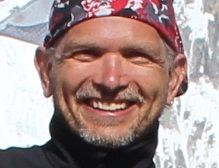 Andrew Schlabach, MAcOM, EAMP is the co-founder and President of the Acupuncture Relief Project having received his Masters in Acupuncture and Oriental Medicine from the Oregon College of Oriental Medicine in 2008. Currently on faculty at Oregon College of Oriental Medicine, Mr. Schlabach teaches orthopedics, advanced acupuncture and serves as a clinic supervisor. He maintains a private practice at Wintzer Acupuncture in Camas Washington and is the author and publisher of the Acupuncture and Chinese Herbal Medicine - Clinic Survival Guide.
Andrew Schlabach, MAcOM, EAMP is the co-founder and President of the Acupuncture Relief Project having received his Masters in Acupuncture and Oriental Medicine from the Oregon College of Oriental Medicine in 2008. Currently on faculty at Oregon College of Oriental Medicine, Mr. Schlabach teaches orthopedics, advanced acupuncture and serves as a clinic supervisor. He maintains a private practice at Wintzer Acupuncture in Camas Washington and is the author and publisher of the Acupuncture and Chinese Herbal Medicine - Clinic Survival Guide.

